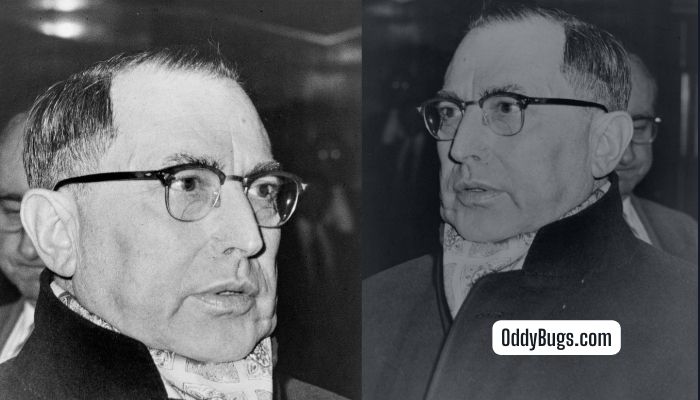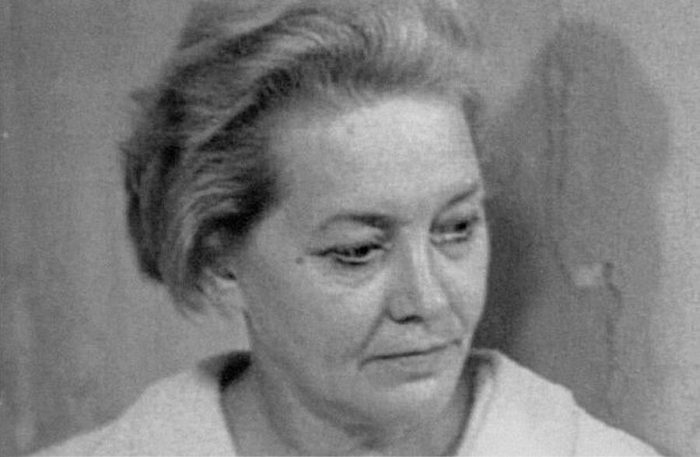Joe Profaci was an Italian-American mafia leader who was well known for being the first member of the infamous Colombo crime family. He was introduced to various criminal acts as a teenager and later grew to become a crime boss following his migration to the United States in 1921.
Until his demise on June 6, 1962, Joe was married to Ninfa Magliocco with whom he had 6 kids. A good number of his children eventually joined the Profaci crime family which is now known as the Colombo crime family. 62 years after the demise of its founder, the Colombo crime family continues to engage in organized criminal activities with several members littered across New York City.
Joe Profaci’s Early Life Background

Giuseppe Profaci was born on October 2, 1897, in Villabate, Sicily’s Province of Palermo to Italian parents Salvatore Profaci and Rosalia Bonventre. Not much is known about his life account back in Sicily until he landed in New York City upon his arrival in the US in 1921.
The Italian-born eventually made Chicago his home and started his own food store there. The company, however, did not end up being lucrative. As a result, he relocated to New York City in the middle of the 1920s to work in the olive oil industry. It was there that he connected with mafias like Vincent Mangano. Following his acquaintance with crime and criminality, Profaci established his own gang by the end of the 1920s, and by the beginning of the 1930s, he was operating his own organized crime group out of Brooklyn.
All you Need to Know about Joe Profaci’s Marriage and Crime Family
Giuseppe married Ninfa Magliocco on 29 April 1928, in Kings, New York, United States. According to sources, he fathered at least 6 children with his wife, and among them were Frank Profaci and John Profaci Sr. Frank eventually joined the Profaci crime family while John Sr. followed legitimate pursuits. More so, Two of Profaci’s daughters married the sons of Detroit Partnership mobsters William Tocco and Joseph Zerilli.
As you will easily find, Joe Profaci was popularly known as the crime boss of the Profaci crime family now known as the Colombo crime family. The Colombo crime family is an Italian American Mafia crime family and is the youngest of the “Five Families” that dominate organized crime activities in New York City within the criminal organization known as the American Mafia.
The family traces its origins back to a bootleggers’ gang Profaci established in 1928. Till the late 1950s, Profaci would dominate his family without opposition. Meanwhile, three internal wars have torn apart the family. The first was in the late 50s, the second in 1971, and the third and bloodiest in 1991.
Although the family witnessed many crises since its inception in 1928, it is still active to date with an estimated 110 members and 500 associates. The infamous family is known for involving in several heinous criminal activities such as arms trafficking, arson, battery, bribery, and killing just to mention a few. Its allies include the Bonanno crime family, the Gambino crime family, and the Patriarca crime family.
Joe Profaci’s Rise to Fame and Prosperity
Profaci’s rise to fame is closely linked to his crime and business history. He is known to have started doing small-time crimes as a child back then in Italy. He joined the Sicilian mafia while he was still a teenager and in 1920, he was detained for theft. In 1921, after serving a year in prison, he made the decision to board a ship bound for the United States, which was something that many Italians back then did in order to lead better lives.
On arriving in the U.S., Giuseppe initially made his home in Chicago, where he started a modest grocery store with the little money he had saved from his time spent in Sicily. This occurred around ten years before the Great Depression severely affected America. However, most companies at the time, including his, did poorly.
For a few years, he made an effort to revive the company. But in 1925, he made the decision to close his company and explore new business ventures. Moving on, Profaci decided to move to new New York and start a company that exports and imports olive oil. It is thought that at this point he started establishing contacts with the leaders of the Italian mafia, a step that was essential to running his operation successfully.
He soon started exploiting his connections with the mafia to rapidly expand his firm. He gained the title of “the olive oil king” and became the largest exporter of olive oil in the city within a few years. His oil business was known as Mamma Mia Importing Company, leading to his nickname “Olive Oil King”.
Despite the success he recorded in his oil business, Joe still sought new business prospects. He decided to start his own gang after establishing enough connections to comprehend how the New York mafia operated. In 1927, Giuseppe founded his group and started cultivating ties with the city’s other mafia leaders.
Away from his olive oil business, Joe possessed a sizable residence in Bensonhurst, Brooklyn. He also had a residence in Miami Beach, Florida, and a 328-acre (1.33 km2) estate close to Hightstown, New Jersey, which had previously belonged to President Theodore Roosevelt. The Profaci estate included a chapel with an altar that was an exact reproduction of one in St. Peter’s Basilica in Rome, as well as its own airfield.
More so, Profaci was an ardent Catholic who generously donated money to Catholic causes. Being, a Knight of Columbus, he would host Mass celebrations at his estate. It was said that a robber once stole priceless golden crowns from the Regina Pacis Votive monument in Brooklyn. Profaci immediately sent his men to retrieve the crowns and assassinate the thief.
Finding a Place Among the State’s Mafia Leaders
Joe’s influence continued to grow rapidly just a few months after establishing his own gang. This made the other mafia bosses notice his presence as a growing authority. Hence, on December 5, 1928, he received an invitation to the infamous mafia summit held in Cleveland’s “Statler Hotel.” Some of the most notorious mafia figures of the day, including Al Capone, were present at the meeting which was later raided by the local police. Consequently, In connection with bootlegging, Joe and a few other gang members were detained. However, he was immediately released on bail and despite his difficulties, Joe was grateful for the invitation to the conference because it signified he was finally being acknowledged as one of the leading mafia leaders of the era.
By 1930, Profaci was in charge of Brooklyn’s drug trade, prostitution, and loansharking. In the same year, the Castellammarese War broke out in New York City. Some sources say that Profaci remained neutral, while others say that Profaci was firmly aligned with Castellammarese boss Salvatore Maranzano.
Top mobster Charles Lucky Luciano reformed the New York gangs into five organized crime groups in 1931 when the battle finally came to a conclusion. Salvatore Profaci served as consignee at this point, with Magliocco serving as Profaci’s underboss and Profaci himself serving as the crime family’s boss.
Profaci was given a position on the board of directors when Luciano established the National Crime Syndicate, often known as the Mafia Commission.
More Success for Joe Following the Great Depression of 1931
The Great Depression had already consumed the nation by 1931 and Joe took full advantage of the chance to launch ventures in the drug trade, prostitution, loan-sharking, and alcoholic beverage production. It was at this point that Joe Profaci’s gang was declared one of the “Five Families of New York”
Joe was different from other mafia lords because he operated his illicit ventures alongside his legitimate ones. He avoided being detained for tax evasion thanks to his legal business ventures, which was obviously the greatest approach for the local prosecutors to reveal the organized crime groups in the city.
His olive oil company, which he never left, continued to be his principal legal source of income. The Second World War greatly raised the need for oil, making the firm extremely prosperous. He managed about 20 lawful companies and employed hundreds of New Yorkers, which somehow helped him gain some respect from the locals. At the time, unemployment was rampant and finding a job was quite challenging. He, therefore, appeared to many like a rescuer.
SEE ALSO: Mickey Cohen- The True Story of A Real Life Gangster- 12 Shocking Facts
Joe’s Clashes With the Authorities
Although Profaci tried as much as possible to cover his criminal tracks, the authorities were always on his trail. The Internal Revenue Service of the United States sued Profaci in 1953 for nearly $1.5 million in unpaid income taxes. Even at Profaci’s passing, the taxes were still unpaid.
Similarly, The US Department of Justice made a request to strip Profaci of his citizenship in 1954. According to the authorities, Profaci told immigration officials he had never been arrested in Italy when he entered the country in 1921. The case came to a conclusion in 1960 when a U.S. Court of Appeals overturned Profaci’s deportation order.
More so, when his supply of imported Italian oranges was discovered to contain heroin in 1959, he was faced with yet another problem. But the accusations against him were withdrawn because there was no hard evidence.
He Passed at the Age of 64 After Battling Cancer
Profaci passed away from liver cancer on June 6, 1962, at South Side Hospital in Bay Shore, New York. He is interred in one of the cemetery’s biggest mausoleums in Saint John Cemetery in Queens’ Middle Village neighborhood. His brother-in-law, Magliocco took Profaci’s place as the family’s head after his passing. But in 1963, the Mafia Commission removed Magliocco from his position and replaced him with Joseph Colombo as the head of the family. The Profaci crime family changed its name to the Colombo crime family at this point.
Although the ‘Olive Oil King Joe’ is long dead, the crime family he formed is very much active and raining terror in New York City with additional territory in places like Long Island, North Jersey, Massachusetts, South Florida, Las Vegas, and Los Angeles.







